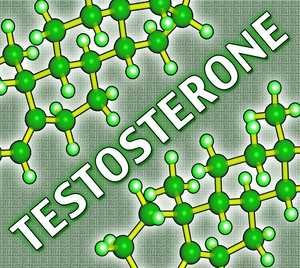Introduction
Testosterone propionate, a synthetic form of the primary male sex hormone testosterone, is commonly used for hormone replacement therapy and to enhance muscle mass and strength. Despite its widespread use, the cardiovascular effects of testosterone propionate on American men have been a subject of intense scrutiny and debate. This article delves into the relationship between testosterone propionate and cardiovascular health, providing insights that are crucial for American males considering or currently using this hormone.
Cardiovascular Benefits of Testosterone Propionate
Testosterone propionate has been associated with several cardiovascular benefits. Studies have shown that it can improve endothelial function, which is essential for maintaining vascular health. Enhanced endothelial function can lead to better blood flow and reduced risk of atherosclerosis. Additionally, testosterone propionate can increase the levels of high-density lipoprotein (HDL) cholesterol, often referred to as "good" cholesterol, which helps remove other forms of cholesterol from the bloodstream, thereby reducing the risk of heart disease.
Furthermore, testosterone propionate has been found to have a positive impact on insulin sensitivity. Improved insulin sensitivity can lead to better glucose metabolism and a reduced risk of developing type 2 diabetes, a condition that is a significant risk factor for cardiovascular disease. These benefits suggest that testosterone propionate could play a protective role in cardiovascular health for American men.
Potential Cardiovascular Risks
Despite the potential benefits, testosterone propionate is not without its risks. One of the primary concerns is its potential to increase the levels of low-density lipoprotein (LDL) cholesterol, known as "bad" cholesterol. Elevated LDL cholesterol levels can contribute to the buildup of plaque in the arteries, increasing the risk of heart disease and stroke.
Moreover, testosterone propionate can lead to an increase in hematocrit levels, which is the proportion of red blood cells in the blood. High hematocrit levels can increase blood viscosity, potentially leading to blood clots and increasing the risk of cardiovascular events such as heart attacks and strokes.
Clinical Studies and Controversies
The clinical evidence regarding the cardiovascular effects of testosterone propionate is mixed. Some studies have reported an increased risk of cardiovascular events in men using testosterone therapy, while others have found no such association. A notable study published in the Journal of the American Medical Association (JAMA) suggested a higher incidence of cardiovascular events in men using testosterone therapy, sparking widespread concern and debate.
However, other research, including a comprehensive review published in the European Heart Journal, found no significant increase in cardiovascular risk associated with testosterone therapy. These conflicting findings highlight the need for further research to clarify the cardiovascular safety profile of testosterone propionate.
Guidelines and Recommendations
Given the potential risks and benefits, American men considering testosterone propionate therapy should consult with their healthcare providers to weigh the pros and cons based on their individual health profiles. Regular monitoring of cardiovascular risk factors, such as cholesterol levels and blood pressure, is essential for those on testosterone therapy.
The American Urological Association recommends that testosterone therapy should be considered only after a thorough evaluation of the patient's cardiovascular health. Additionally, lifestyle modifications, such as a healthy diet and regular exercise, can help mitigate some of the potential risks associated with testosterone propionate.
Conclusion
The relationship between testosterone propionate and cardiovascular health in American men is complex and multifaceted. While there are potential cardiovascular benefits, such as improved endothelial function and insulin sensitivity, there are also significant risks, including increased LDL cholesterol and hematocrit levels. As research continues to evolve, it is crucial for American men to engage in informed discussions with their healthcare providers to make well-informed decisions about testosterone propionate therapy. By staying vigilant and proactive about their cardiovascular health, American men can navigate the potential benefits and risks of this hormone therapy more effectively.
Contact Us Today For A Free Consultation

- Testosterone Propionate: Enhancing Male Health and Managing Hormonal Imbalances in American Men [Last Updated On: March 1st, 2025] [Originally Added On: March 1st, 2025]
- Testosterone Propionate's Impact on Sleep Quality in American Males: A Therapeutic Overview [Last Updated On: March 18th, 2025] [Originally Added On: March 18th, 2025]
- Testosterone Propionate's Role in Male Pattern Baldness: Insights for American Men [Last Updated On: March 19th, 2025] [Originally Added On: March 19th, 2025]
- Long-term Testosterone Propionate Use: Health Risks for American Men [Last Updated On: March 19th, 2025] [Originally Added On: March 19th, 2025]
- Ethical Considerations of Testosterone Propionate Use in American Male Athletes [Last Updated On: March 19th, 2025] [Originally Added On: March 19th, 2025]
- Testosterone Propionate: A Potential Solution for Chronic Pain in American Males [Last Updated On: March 19th, 2025] [Originally Added On: March 19th, 2025]
- Testosterone Propionate: A Comprehensive Guide for Weight Management in American Men [Last Updated On: March 20th, 2025] [Originally Added On: March 20th, 2025]
- Testosterone Propionate's Impact on Cognitive Function in American Males: Benefits and Risks [Last Updated On: March 20th, 2025] [Originally Added On: March 20th, 2025]
- Testosterone Propionate: Enhancing Energy Levels in American Men [Last Updated On: March 21st, 2025] [Originally Added On: March 21st, 2025]
- Testosterone Propionate: Benefits, Risks, and Legal Considerations for American Men [Last Updated On: March 21st, 2025] [Originally Added On: March 21st, 2025]
- Testosterone Propionate: Enhancing Male Fertility in American Men [Last Updated On: March 22nd, 2025] [Originally Added On: March 22nd, 2025]
- Testosterone Propionate's Impact on Liver Health: Risks and Mitigation Strategies [Last Updated On: March 22nd, 2025] [Originally Added On: March 22nd, 2025]
- Testosterone Propionate: A Promising Treatment for Anemia in American Men [Last Updated On: March 22nd, 2025] [Originally Added On: March 22nd, 2025]
- Testosterone Propionate: A Promising Treatment for Depression in American Males [Last Updated On: March 22nd, 2025] [Originally Added On: March 22nd, 2025]
- Testosterone Propionate: Enhancing Male Aesthetics and Muscle Growth in America [Last Updated On: March 22nd, 2025] [Originally Added On: March 22nd, 2025]
- Testosterone Propionate: Enhancing Recovery and Performance in American Male Athletes [Last Updated On: March 22nd, 2025] [Originally Added On: March 22nd, 2025]
- Testosterone Propionate: A Promising Therapy for Osteoporosis in American Men [Last Updated On: March 22nd, 2025] [Originally Added On: March 22nd, 2025]
- Testosterone Propionate's Impact on Blood Pressure in American Men: A Comprehensive Analysis [Last Updated On: March 22nd, 2025] [Originally Added On: March 22nd, 2025]
- Testosterone Propionate: Enhancing Sexual Health in American Men Under Medical Supervision [Last Updated On: March 23rd, 2025] [Originally Added On: March 23rd, 2025]
- Testosterone Propionate's Impact on Immune Function in American Males: A Comprehensive Review [Last Updated On: March 23rd, 2025] [Originally Added On: March 23rd, 2025]
- Testosterone Propionate: Exploring Its Role in Stress Management for American Men [Last Updated On: March 23rd, 2025] [Originally Added On: March 23rd, 2025]
- Testosterone Propionate's Impact on Immune Function in American Men: A Comprehensive Review [Last Updated On: March 24th, 2025] [Originally Added On: March 24th, 2025]
- Testosterone Propionate's Impact on Diabetes Risk in American Males: A Comprehensive Review [Last Updated On: March 24th, 2025] [Originally Added On: March 24th, 2025]
- Testosterone Propionate: Effects on Mood and Considerations for American Men [Last Updated On: March 24th, 2025] [Originally Added On: March 24th, 2025]
- Testosterone Propionate's Impact on Cardiovascular Health in American Men: Risks and Benefits [Last Updated On: March 24th, 2025] [Originally Added On: March 24th, 2025]
- Testosterone Propionate: Enhancing Vitality and Performance in American Men [Last Updated On: March 24th, 2025] [Originally Added On: March 24th, 2025]
- Testosterone Propionate's Impact on Cholesterol Levels in American Men: Cardiovascular Risks [Last Updated On: March 24th, 2025] [Originally Added On: March 24th, 2025]
- Testosterone Propionate: Enhancing Strength and Performance in American Men [Last Updated On: March 24th, 2025] [Originally Added On: March 24th, 2025]
- Testosterone Propionate in HRT: Benefits, Risks, and Legal Aspects for American Males [Last Updated On: March 25th, 2025] [Originally Added On: March 25th, 2025]
- Testosterone Propionate's Impact on Mental Health in American Men: Benefits and Risks [Last Updated On: March 25th, 2025] [Originally Added On: March 25th, 2025]
- Testosterone Propionate: A Promising Aid in Managing Obesity in American Males [Last Updated On: March 25th, 2025] [Originally Added On: March 25th, 2025]
- Testosterone Propionate: Enhancing Joint Health in American Men [Last Updated On: March 25th, 2025] [Originally Added On: March 25th, 2025]
- Testosterone Propionate: Enhancing Fitness and Health in American Men [Last Updated On: March 26th, 2025] [Originally Added On: March 26th, 2025]
- Testosterone Propionate: Benefits, Administration, and Risks for American Men's Health [Last Updated On: March 26th, 2025] [Originally Added On: March 26th, 2025]
- Testosterone Propionate: Benefits, Dosage, Side Effects for American Male Bodybuilders [Last Updated On: March 26th, 2025] [Originally Added On: March 26th, 2025]
- Testosterone Propionate's Impact on Mental Health in American Men: Benefits and Risks [Last Updated On: March 26th, 2025] [Originally Added On: March 26th, 2025]
- Testosterone Propionate: Enhancing Performance and Risks for American Men [Last Updated On: March 26th, 2025] [Originally Added On: March 26th, 2025]
- Testosterone Propionate: Enhancing Fertility in American Males with Low Sperm Count [Last Updated On: March 26th, 2025] [Originally Added On: March 26th, 2025]
- Testosterone Propionate's Impact on Bone Health in American Men: Benefits and Risks [Last Updated On: March 27th, 2025] [Originally Added On: March 27th, 2025]
- Testosterone Propionate: Benefits, Risks, and Legal Issues for American Weightlifters [Last Updated On: March 27th, 2025] [Originally Added On: March 27th, 2025]
- Testosterone Propionate in Anti-Aging: Benefits, Risks, and Optimal Use in Men [Last Updated On: March 27th, 2025] [Originally Added On: March 27th, 2025]
- Testosterone Propionate: Enhancing Endurance in American Men - Benefits and Risks [Last Updated On: March 27th, 2025] [Originally Added On: March 27th, 2025]
- Testosterone Propionate: Managing Hormonal Imbalances in American Men [Last Updated On: March 27th, 2025] [Originally Added On: March 27th, 2025]
- Testosterone Propionate: Enhancing Muscle Recovery in American Men - Benefits and Risks [Last Updated On: March 27th, 2025] [Originally Added On: March 27th, 2025]
- Testosterone Propionate: A Promising Treatment for Chronic Fatigue in American Males [Last Updated On: March 28th, 2025] [Originally Added On: March 28th, 2025]
- Testosterone Propionate: Enhancing Sexual Health in American Men - Benefits and Risks [Last Updated On: March 28th, 2025] [Originally Added On: March 28th, 2025]
- Testosterone Propionate: A Promising Treatment for Muscle Wasting in American Males [Last Updated On: March 28th, 2025] [Originally Added On: March 28th, 2025]
- Testosterone Propionate: Boosting Energy in American Males with Low Testosterone [Last Updated On: March 28th, 2025] [Originally Added On: March 28th, 2025]
- Testosterone Propionate: Enhancing Libido and Sexual Performance in American Men [Last Updated On: March 28th, 2025] [Originally Added On: March 28th, 2025]
- Testosterone Propionate: Enhancing Muscle Growth and Strength in American Men [Last Updated On: March 29th, 2025] [Originally Added On: March 29th, 2025]
- Testosterone Propionate: Benefits and Risks for Managing Deficiency in American Men [Last Updated On: March 30th, 2025] [Originally Added On: March 30th, 2025]
- Testosterone Propionate: Cardiovascular Impacts and Risks in American Men [Last Updated On: March 30th, 2025] [Originally Added On: March 30th, 2025]
- Testosterone Propionate's Impact on Mood and Emotional Health in American Men [Last Updated On: April 2nd, 2025] [Originally Added On: April 2nd, 2025]
- Testosterone Propionate: Enhancing Sexual Health and Performance in American Men [Last Updated On: April 3rd, 2025] [Originally Added On: April 3rd, 2025]
- Testosterone Propionate: Benefits, Risks, and Ethics in Athletic Performance Enhancement [Last Updated On: April 5th, 2025] [Originally Added On: April 5th, 2025]
- Testosterone Propionate Boosts Bone Density in American Men: Benefits and Risks [Last Updated On: April 5th, 2025] [Originally Added On: April 5th, 2025]
- Testosterone Propionate: Enhancing Sexual Desire and Function in American Men [Last Updated On: April 7th, 2025] [Originally Added On: April 7th, 2025]
- Testosterone Propionate: Managing Deficiency in American Men - Benefits and Considerations [Last Updated On: April 9th, 2025] [Originally Added On: April 9th, 2025]
- Testosterone Propionate: A Promising Treatment for Fatigue in American Males [Last Updated On: April 9th, 2025] [Originally Added On: April 9th, 2025]
- Testosterone Propionate: Medical Uses, Fitness Benefits, and Regulatory Considerations [Last Updated On: April 9th, 2025] [Originally Added On: April 9th, 2025]
- Testosterone Propionate: Enhancing Muscle Strength and Performance in American Men [Last Updated On: April 9th, 2025] [Originally Added On: April 9th, 2025]
- Testosterone Propionate in HRT: Benefits, Risks, and Considerations for American Men [Last Updated On: April 9th, 2025] [Originally Added On: April 9th, 2025]
- Testosterone Propionate: Treating Muscle Loss in American Males [Last Updated On: April 10th, 2025] [Originally Added On: April 10th, 2025]
- Testosterone Propionate: Enhancing Sports Performance and Associated Risks for American Men [Last Updated On: April 10th, 2025] [Originally Added On: April 10th, 2025]
- Testosterone Propionate's Impact on American Men's Psychological Health: Benefits and Risks [Last Updated On: April 12th, 2025] [Originally Added On: April 12th, 2025]
- Testosterone Propionate: Enhancing Strength Training in American Men - Benefits and Risks [Last Updated On: April 12th, 2025] [Originally Added On: April 12th, 2025]
- Testosterone Propionate: Cardiovascular Risks and Benefits in American Men [Last Updated On: April 13th, 2025] [Originally Added On: April 13th, 2025]
- Testosterone Propionate: Impacts on American Men's Reproductive Health and Beyond [Last Updated On: April 13th, 2025] [Originally Added On: April 13th, 2025]
- Testosterone Propionate: A Promising Treatment for Sarcopenia in Aging American Males [Last Updated On: April 14th, 2025] [Originally Added On: April 14th, 2025]
- Testosterone Propionate: Enhancing Athletic Performance and Risks for American Men [Last Updated On: April 17th, 2025] [Originally Added On: April 17th, 2025]
- Testosterone Propionate: Enhancing Mental Health in American Men [Last Updated On: April 18th, 2025] [Originally Added On: April 18th, 2025]
- Testosterone Propionate: Combating Lethargy in American Males [Last Updated On: April 18th, 2025] [Originally Added On: April 18th, 2025]
- Testosterone Propionate: Uses, Benefits, and Risks in Men's Health Programs [Last Updated On: April 18th, 2025] [Originally Added On: April 18th, 2025]
- Testosterone Propionate: Enhancing Sexual Vitality in American Men - Benefits and Risks [Last Updated On: April 18th, 2025] [Originally Added On: April 18th, 2025]
- Testosterone Propionate's Impact on Bone Density and Joint Health in American Men [Last Updated On: April 19th, 2025] [Originally Added On: April 19th, 2025]
- Testosterone Propionate: Benefits, Risks, and Regulation for American Men's Health [Last Updated On: April 19th, 2025] [Originally Added On: April 19th, 2025]
- Testosterone Propionate: Enhancing Emotional Well-being in American Men [Last Updated On: April 20th, 2025] [Originally Added On: April 20th, 2025]
Word Count: 618





















